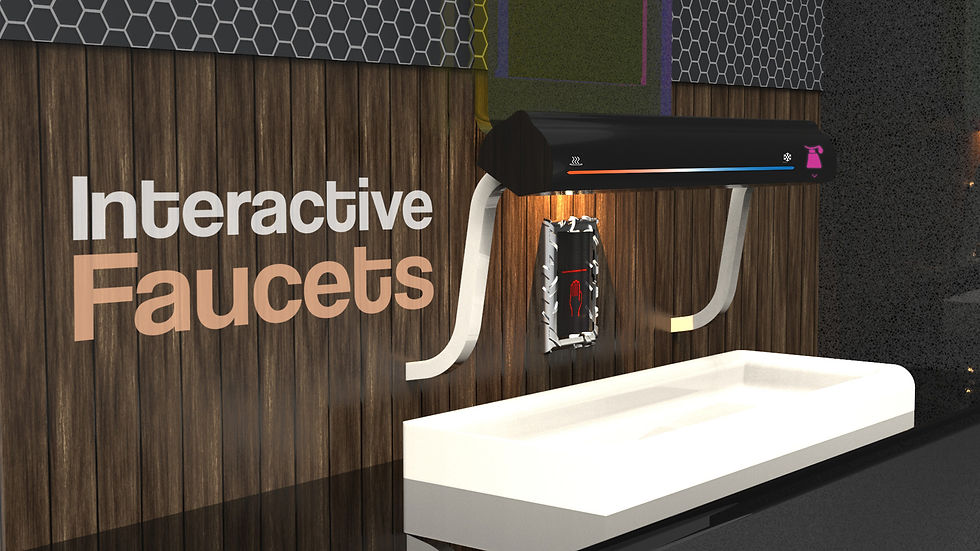
Interactive Faucets

About
Water faucets are among one of the commonly used objects in both households and commercial places. With the introduction of various new types of faucets in the market, how to use them becomes confusing. This study aimed to analyze and redesign the faucets to make them more usable and interactive.
Duration
1 Week
Interaction Design
UX Design
Product Design
Product Audit
Team
Jithin Manoharan
Allwin William Samuvel
Scope
My role
Product designer
Interaction designer
Prototyping
Rendering
Illustrations
Concept video
Design Audit


A design audit was conducted on the existing faucets before starting the design process to understand the visceral and behavioral aspects of them. It was to identify the discoverability and understanding of the overall design and how much they are communicating to the user.
A design audit was conducted on the existing faucets before starting the design process to understand the visceral and behavioral aspects of them. It was to identify the discoverability and understanding of the overall design and how much they are communicating to the user.

The Design audit helped to identify the signifiers and affordances existing in most common types of faucets. To enhance them, a new design process was started.

Design Process
5 stages of design process

STRATEGY
Problem identification, context, competitor analysis and user needs

SCOPE
Functions, features and usage scenarios

STRUCTURE
Concept, interactions and detailing

SKELETON
Signifiers, affordances and Information design

SURFACE
Visceral look and appealing to users
Problem identification

Problems Identified: Different problems from various aspects such as usability, cleanliness, and environment were found out.
Competitive analysis

The latest models in commonly found automatic faucets in categories like those with handles works on touch and touch-less were analyzed.
Context

The context was defined as the usage of faucets in restaurants.
User needs

Common needs of different personas were mapped.
The strategy was to study, analyze, and finding new opportunities to improve faucets and converting them into a redesigned concept with new features and functionalities that solves an existing problem.
Strategy
I

Detailed descriptions of functional requirements and feature specifications needed were considered.
Scope
II

Ideation of concepts was done and finalized one. Then the task flow was defined and then the concept was detailed by adding all interactions.
Structure
III


Sensing hand
As soon as the user places the hand, according to the placement water will pour at a specific temperature after giving user an indication.

Handwash
Hand wash dispenser pour a small amount of the hand wash liquid when hands are placed under it.

Timeout
If the user is using the faucet for too long (more than 10 seconds), the faucets will automatically stop functioning, giving a warning.
Designing and defining how to communicate the usage information to the user using signifiers and affordances. Using icons, Led indicators etc. the information and feedback were given to the user.
Skeleton
IV
information design
How to use ?
An LED animation act as a signifier
Temperature

Show the temperature range in a gradient from cool to hot along with icons on corners
On/Off
An LED strip over the faucet
pipe, turn on at the position of
hand along with sound.
Handwash
An elevated handwash portion with light act as a signifier


The features in the prototype communicating to the user. Signifiers and affordances
Experiential Prototype

Putting all things together and make a model and an experiential prototype
Focusing on the visceral aspects to make the concept more appealing to the target users
Surface
V

Key Features
